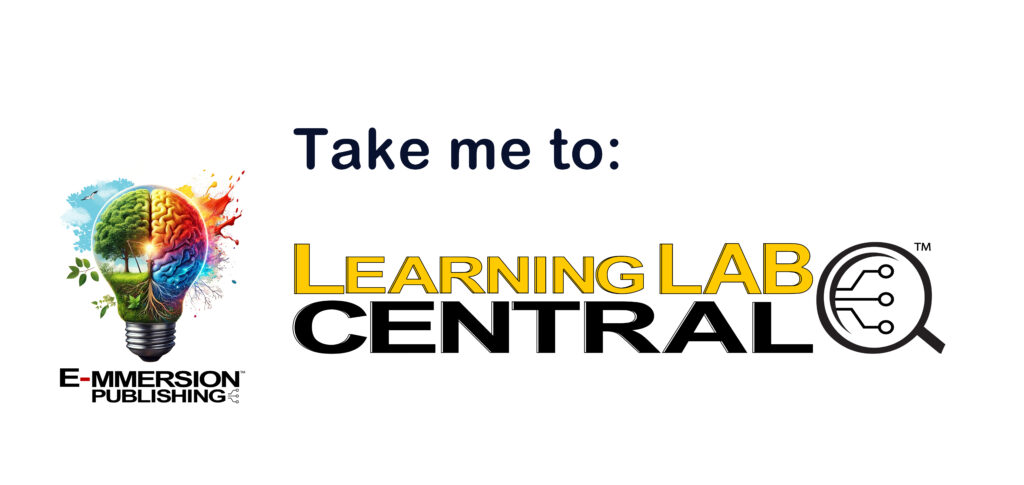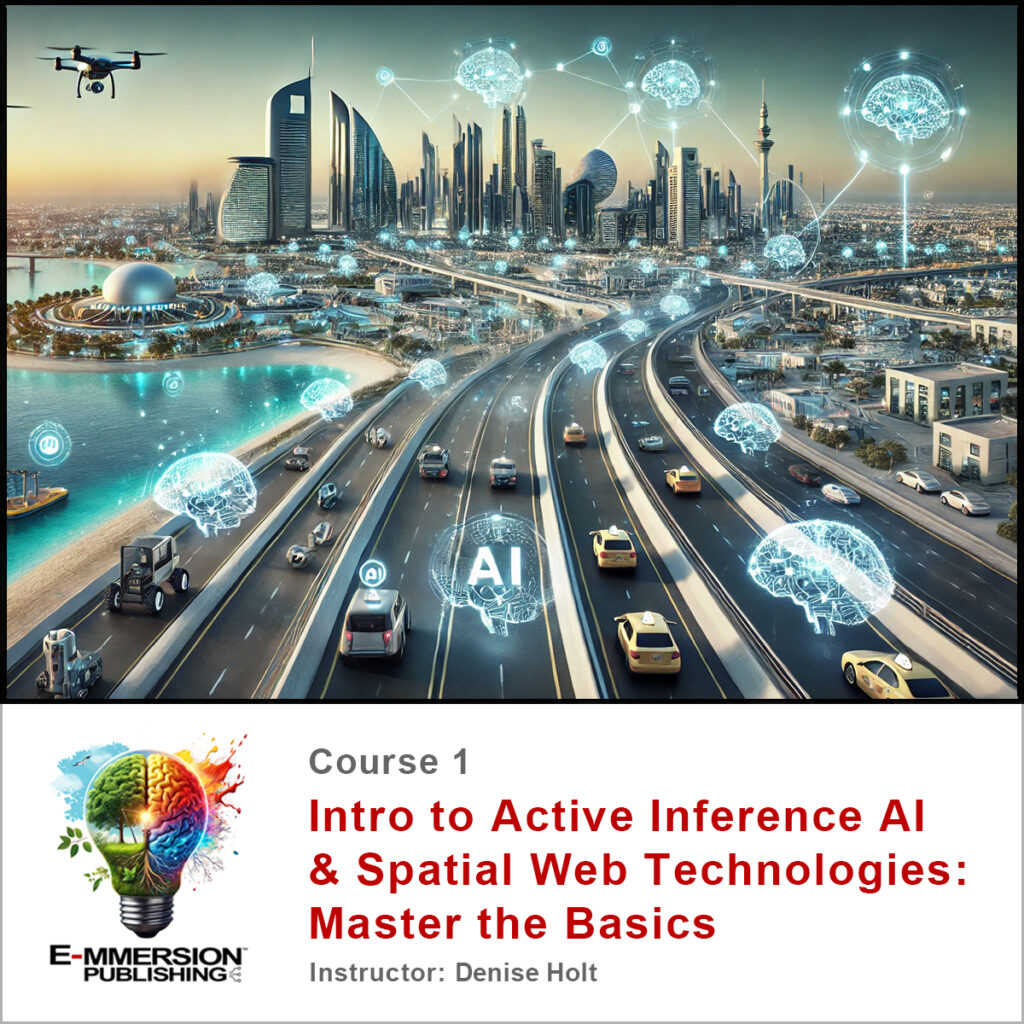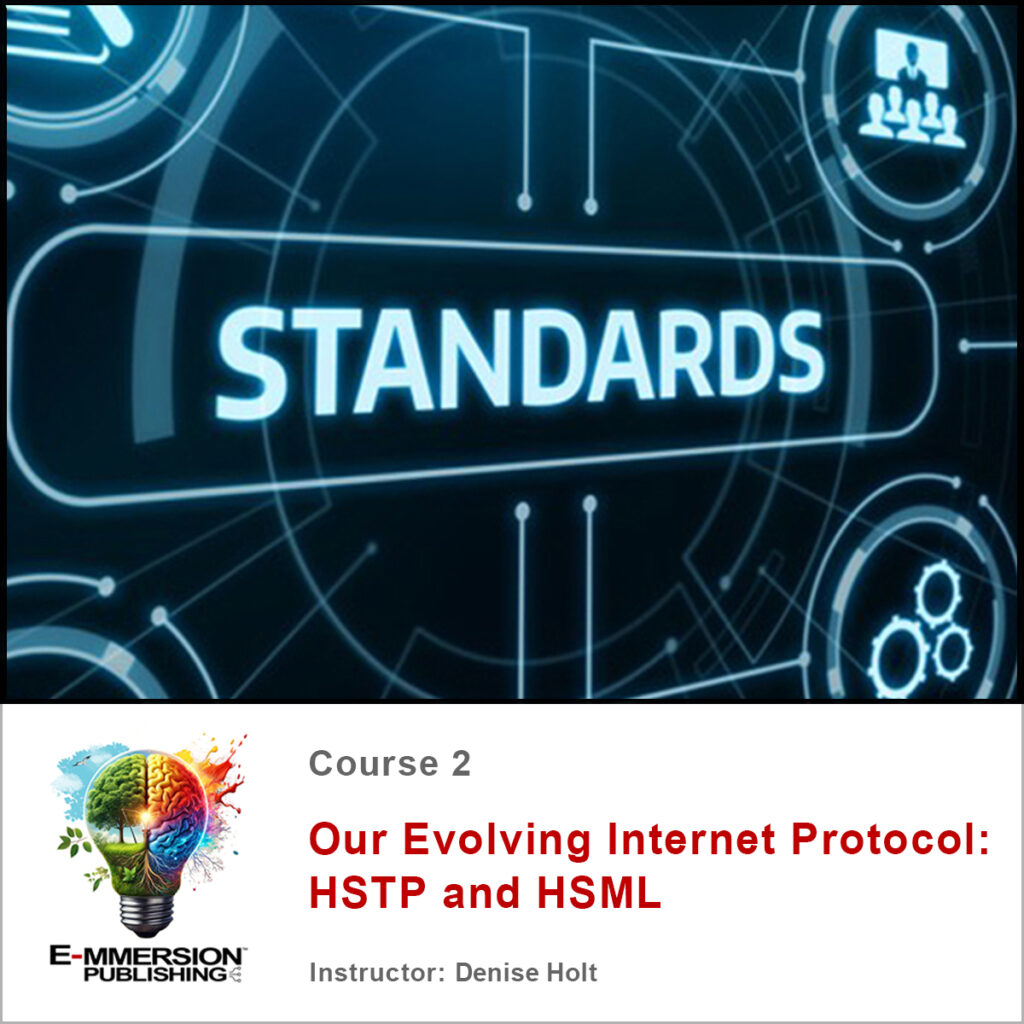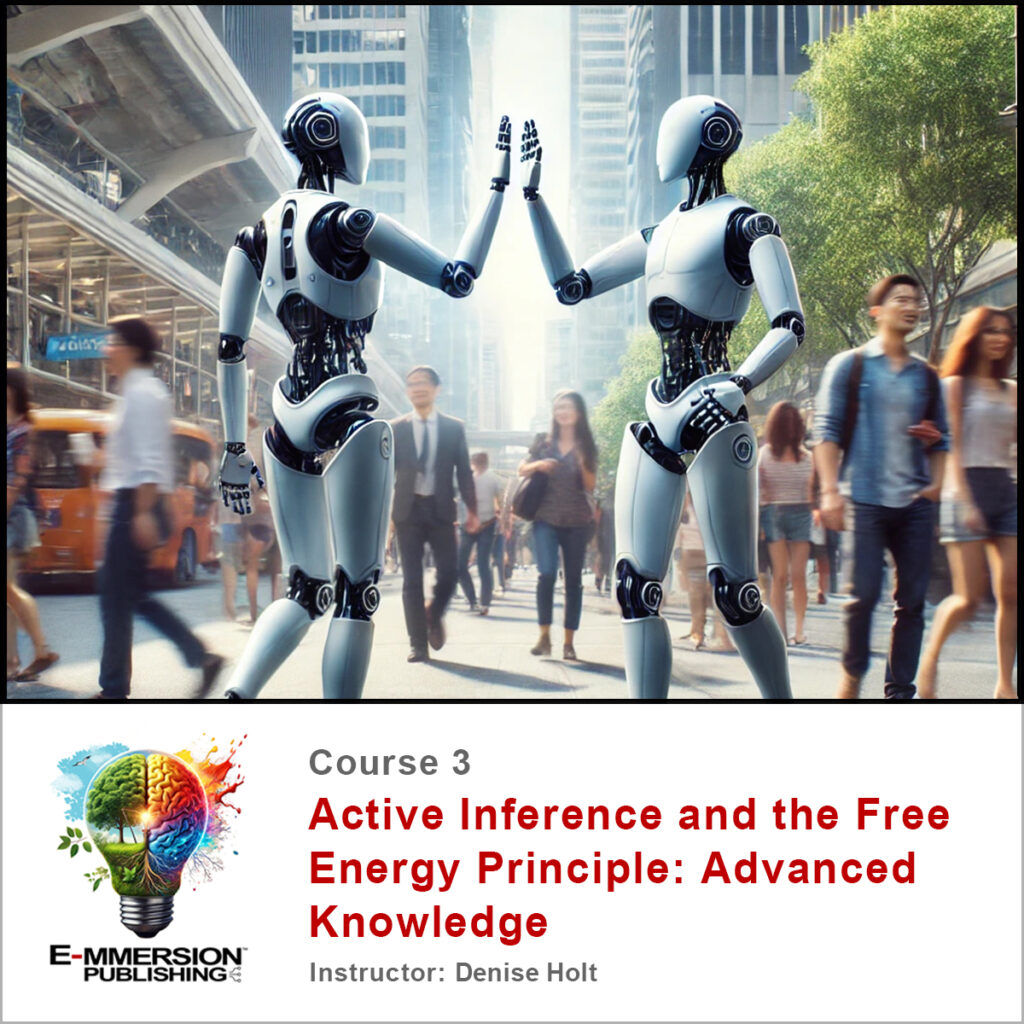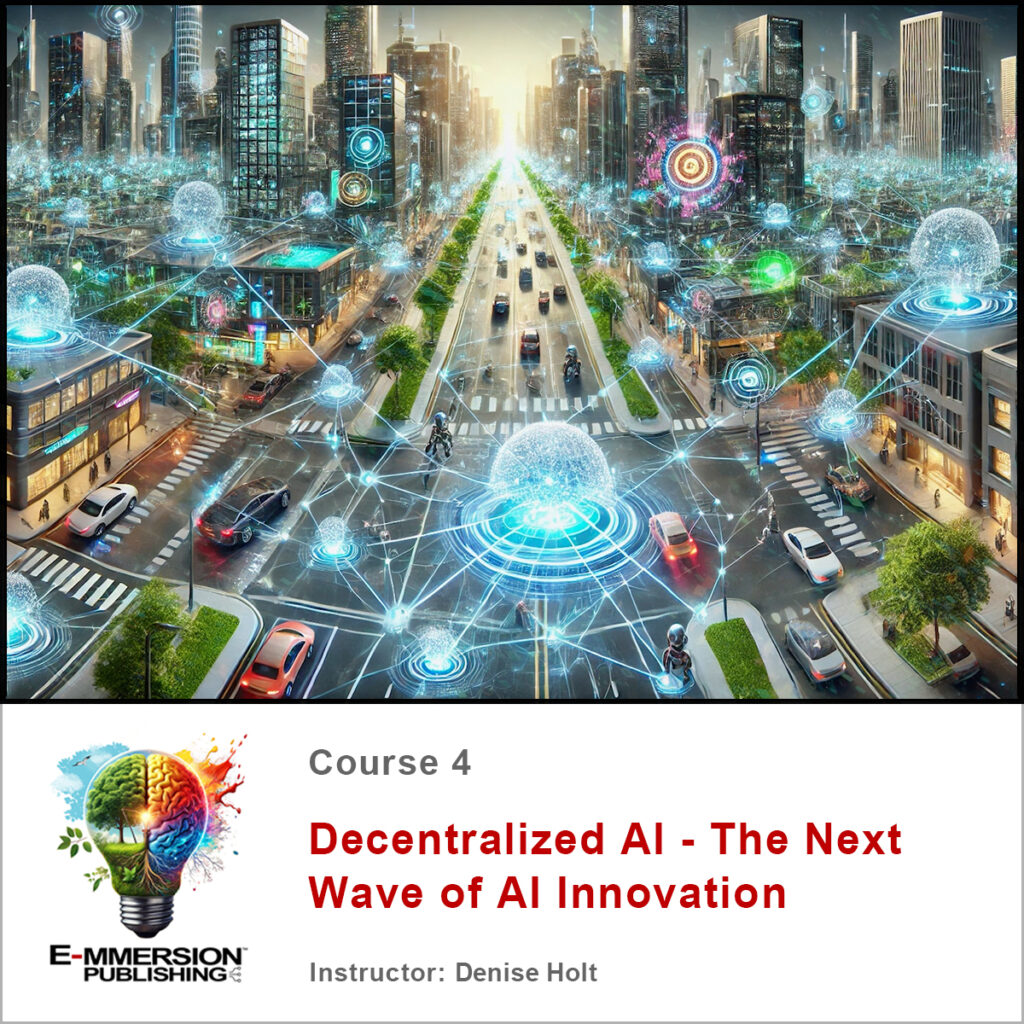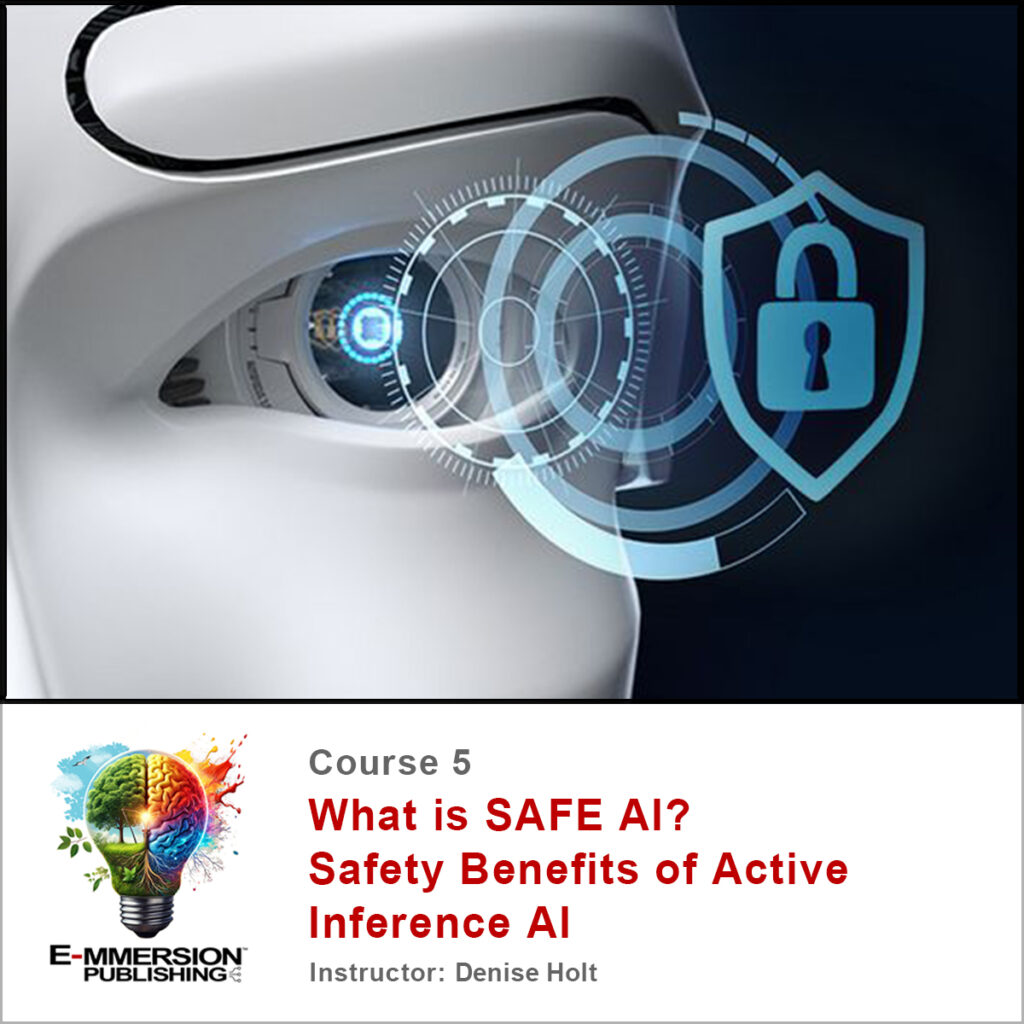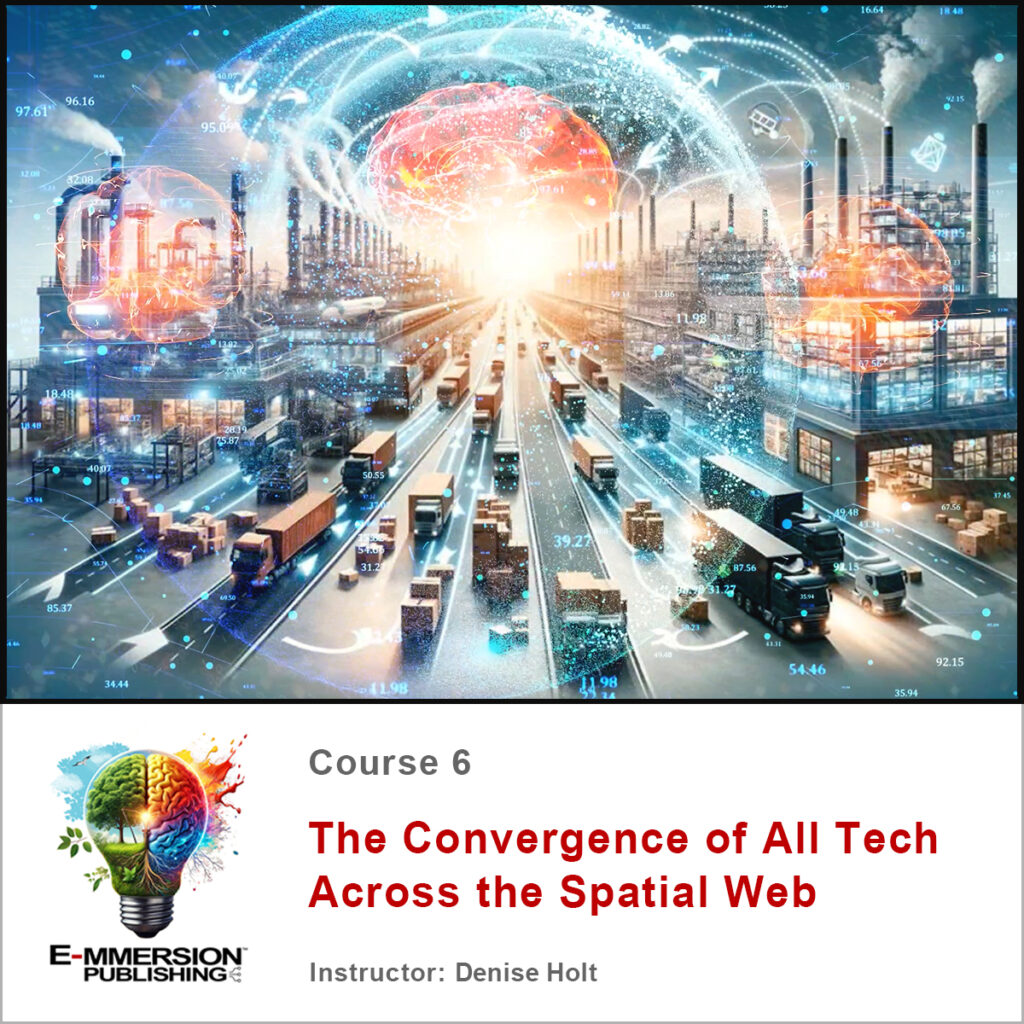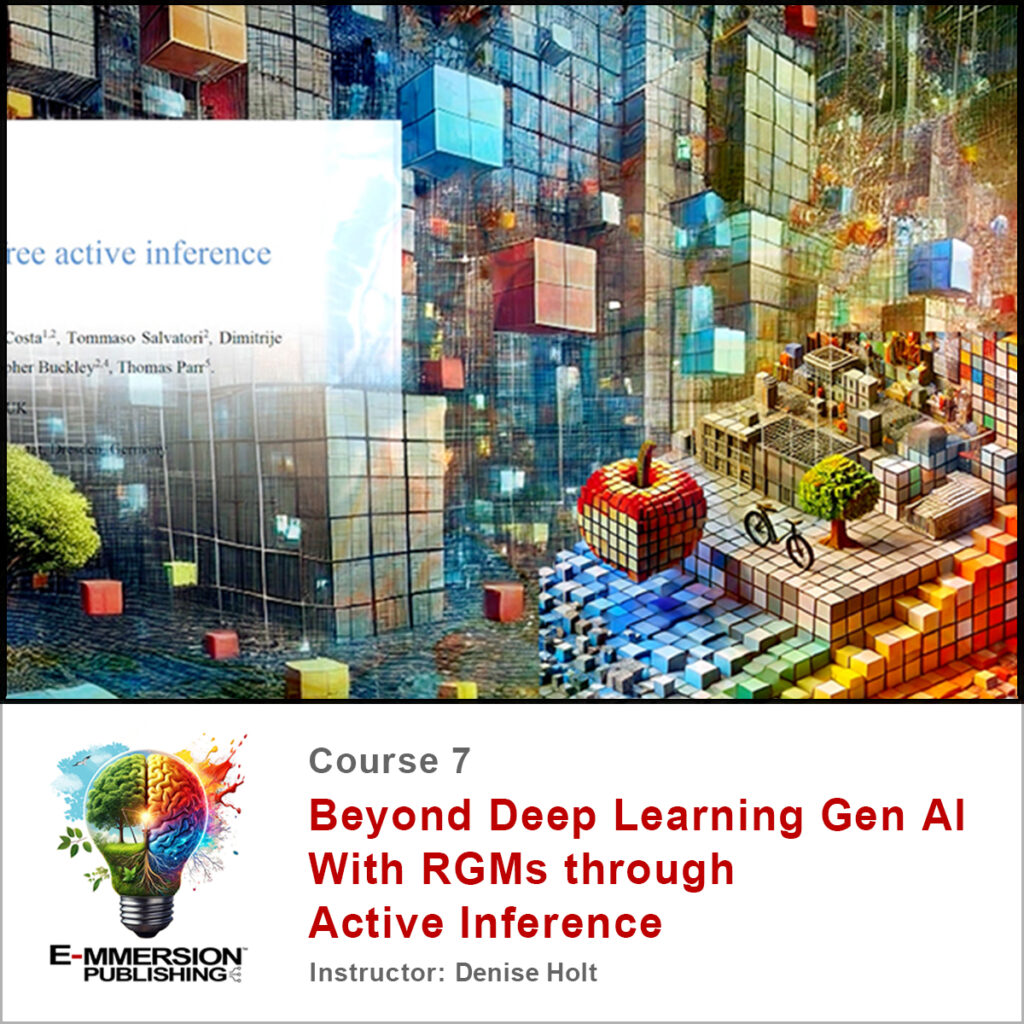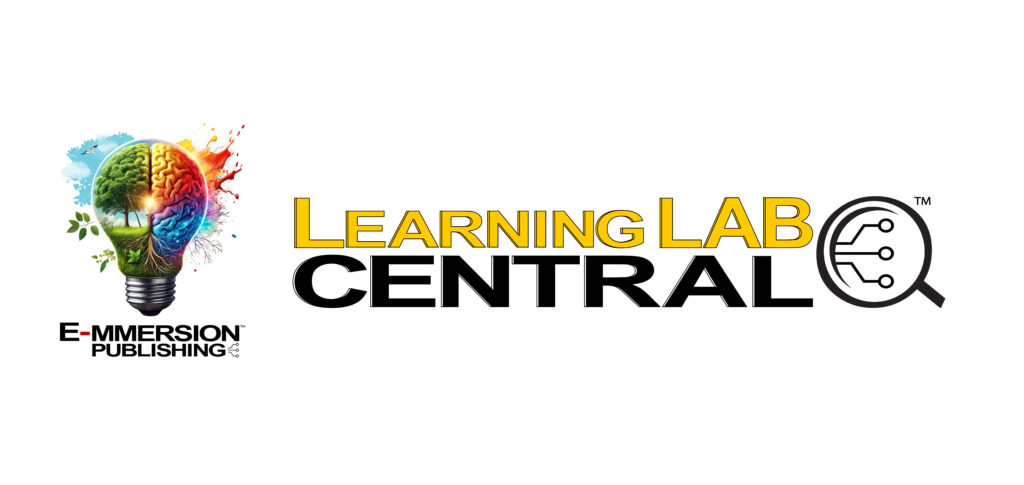Active Inference and the Free Energy Principle: Advanced Knowledge
Enroll in this course to learn about advanced principles of Active Inference and the Free Energy Principle, focusing on how intelligent agents form and update beliefs, transform uncertainty into confidence, and create symbiotic intelligence through shared understanding.


COURSE 3 - Active Inference and the Free Energy Principle: Advanced Knowledge
This course introduces learners to the advanced concepts of Active Inference AI. Through six modules, you will explore how intelligent agents refine their understanding of the world by continuously gathering evidence, updating beliefs, and building confidence in their predictions. This process not only allows agents to adapt to dynamic environments but also facilitates the emergence of collective intelligence within the Spatial Web. By examining the Bayesian mechanics that power belief updating, students will gain insights into the transformative potential of symbiotic intelligence, where individual perspectives contribute to a broader, collaborative model of reality. This course equips learners with the knowledge to understand how Active Inference can revolutionize various sectors, from supply chains to Smart Cities, by enabling systems that adapt, predict, and cooperate in real-time.
Course Outline:
Module 1: Foundations of Bayesian Inference and Free Energy Principle
This module introduces Bayesian inference and the Free Energy Principle, the core of Active Inference AI. Bayesian inference allows agents to update beliefs with new evidence, while the Free Energy Principle explains how systems reduce uncertainty by predicting and adapting to their environment. Together, these principles enable AI to learn, adapt, and make context-aware decisions in real-time.
Module 2: Principles of Active Inference
Dive deeper into the core principles of Active Inference, exploring how intelligent systems maintain their internal states and achieve their objectives. Active Inference enables agents to plan, predict, and adapt to their environments through a continuous feedback loop of perception and action. By minimizing surprises and updating internal models in real time, this approach allows agents—whether humans, robots, or systems—to achieve their goals efficiently and adaptively in dynamic environments.
Module 3: Deepening Understanding of Active Inference and Free Energy Principle
This module explores how intelligent agents transform uncertainty into confidence through Bayesian mechanics and belief updating, focusing on how agents refine their internal models by continuously perceiving and acting on their environment. This process minimizes uncertainty and surprise through Bayesian inference, enabling agents to self-optimize and evolve. The module also explores how this dynamic cycle supports decision-making, learning, and adaptability in complex environments, paving the way for intelligent, autonomous systems that interact seamlessly with the world.
Module 4: Advanced Concepts in Active Inference
This module explores how intelligent agents minimize complexity and energy while continuously learning and adapting. It introduces Markov blankets as key boundaries mediating interactions between internal and external states, enabling agents to self-organize and operate efficiently in dynamic environments. The module also highlights the Free Energy Principle and its role in autonomous decision-making, making Active Inference AI adaptable, scalable, and energy-efficient.
Module 5: Integrating AI with Biological Design and Self-Reporting
This module explores how Active Inference AI combines biological design, introspection, and self-reporting to enable intelligent, adaptive decision-making. These agents continuously process sensory data, refine their internal models, and self-optimize in real-time, ensuring transparency and accountability. Through technologies like HSML and the Free Energy Principle, they integrate perception and action to operate efficiently across dynamic environments, from healthcare to robotics, offering unparalleled explainability and adaptability.
Module 6: Expanding on Collective Intelligence and Inter-Agent Collaboration
The final module envisions the transformative potential of Active Inference AI in shaping the future of technology. By sharing perspectives, accumulating evidence, and self-organizing, Active Inference Intelligent Agents build a shared generative model of their environment. Enabled by the Spatial Web Protocol, agents communicate and cooperate at scale, aligning their unique knowledge to achieve shared goals. This decentralized collaboration drives innovation and efficiency across industries, from Smart Cities to global logistics.
Module Overview:
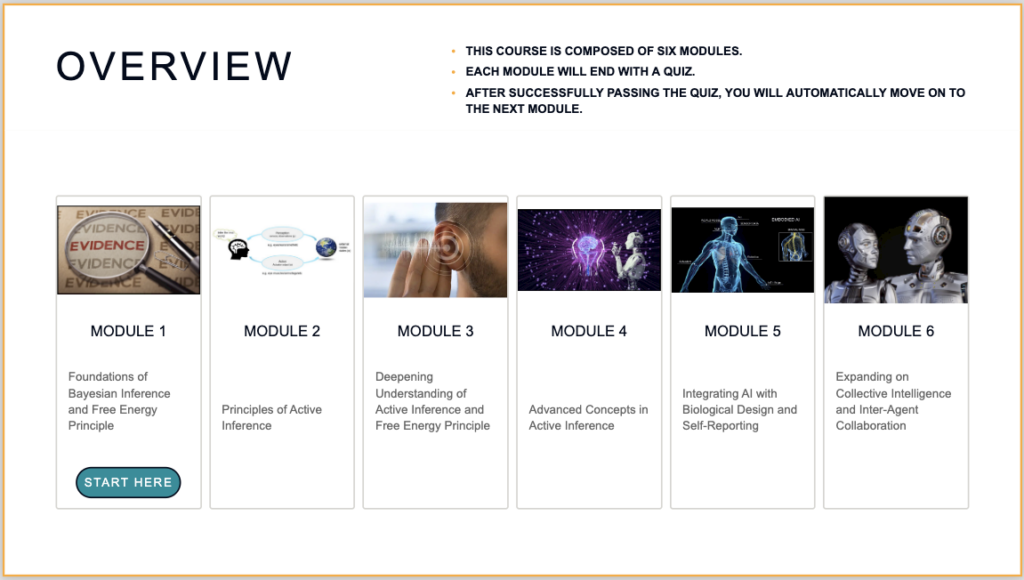
Sample Lessons:
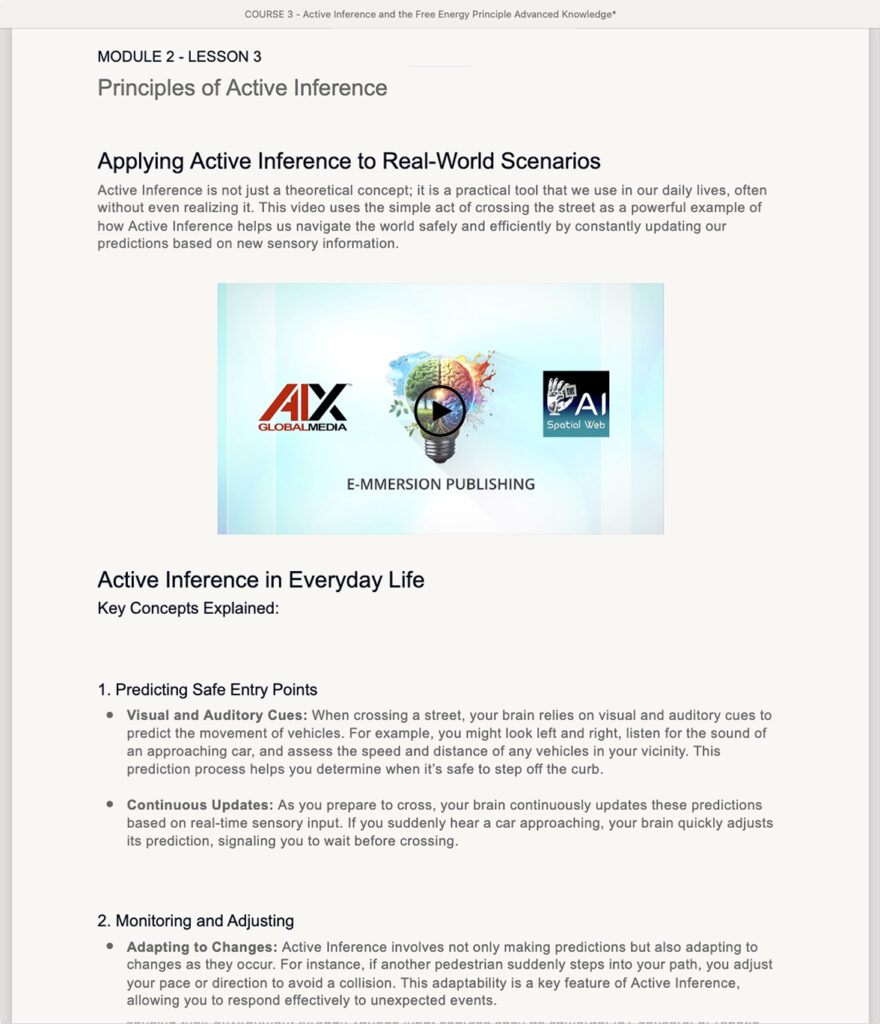
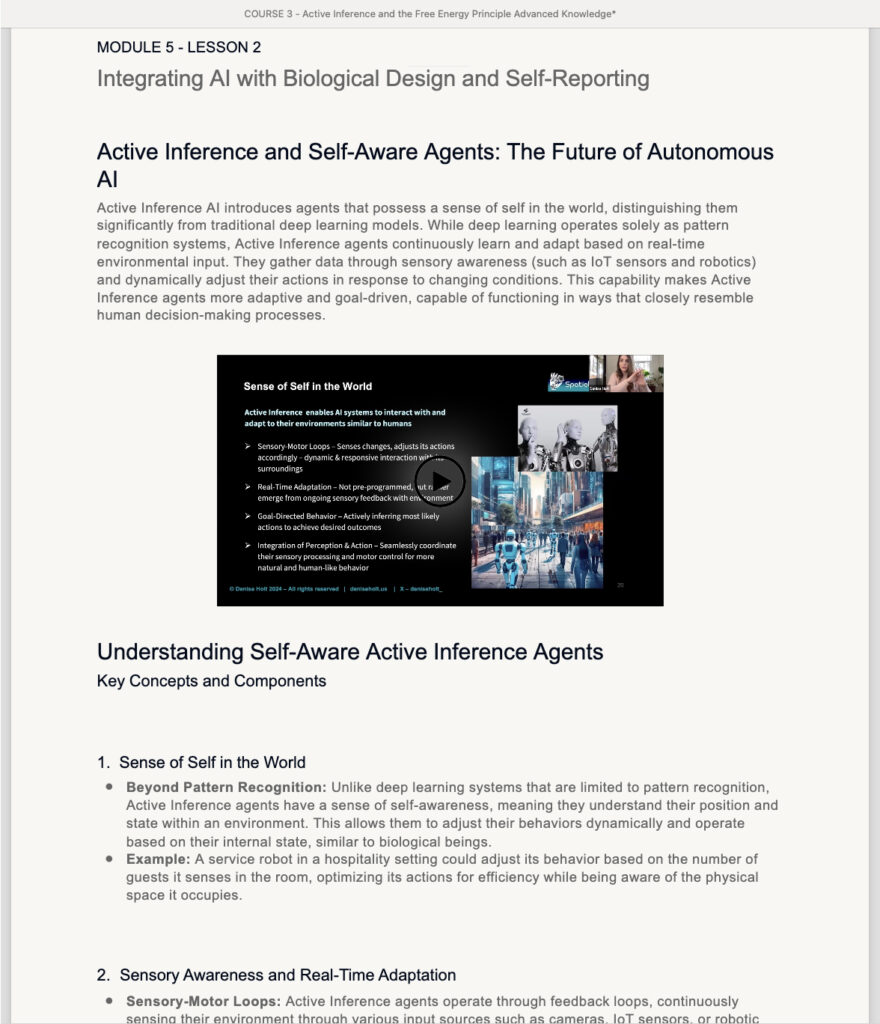
Empower Your Future with Exclusive Certification

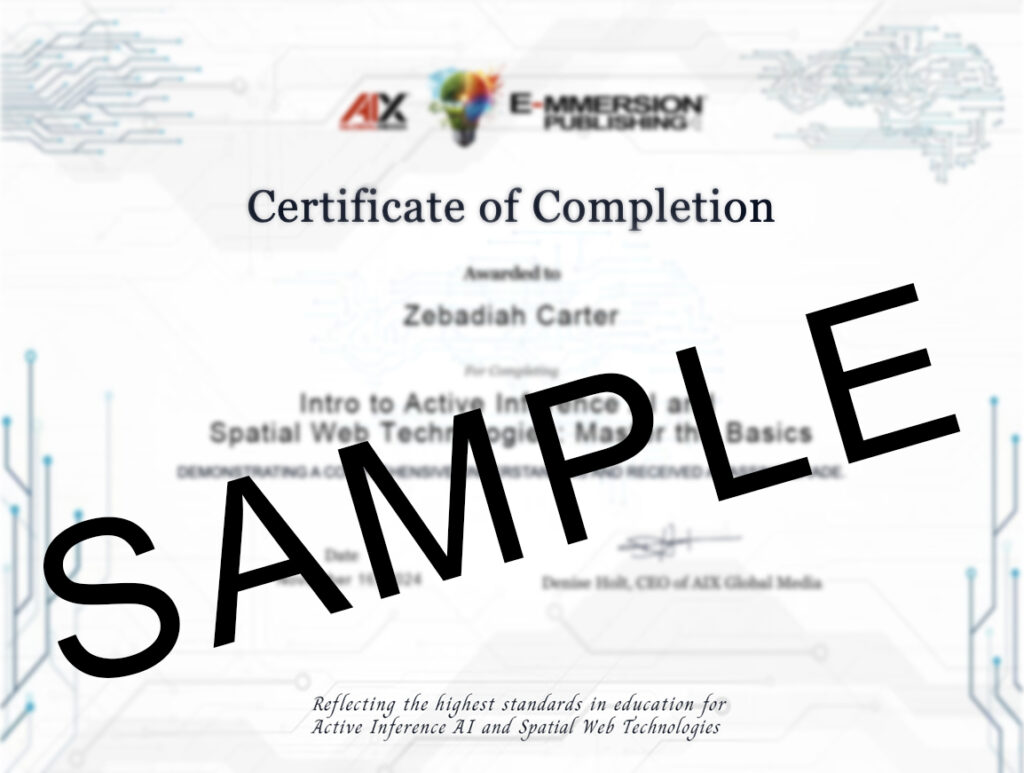
Lead the Next Era of Technology with Expertise in Active Inference AI and Spatial Computing
Earning certification through our courses on Active Inference AI and Spatial Web Technologies places you at the forefront of technological innovation. As the only educator and recognized authority in this groundbreaking field, I’ve designed these courses to provide unparalleled expertise and practical insights. Executive leaders who achieve certification gain a distinct advantage, positioning themselves as trailblazers in shaping the next evolution of intelligent, decentralized systems. In a rapidly changing technological landscape, this certification signifies your mastery and readiness to lead in the era of transformative AI and spatial technologies.
Successfully passing this course with a score of 80% or greater, earns you a Certificate of Completion for the course.
This Course is part of a 7 course Executive Certification Program to become a Certified Specialist in Active Inference AI and Spatial Web Technologies.

Explore the Courses:
Click on any course for an in-depth look…
© 2024 AIX Global Media All Rights Reserved.




